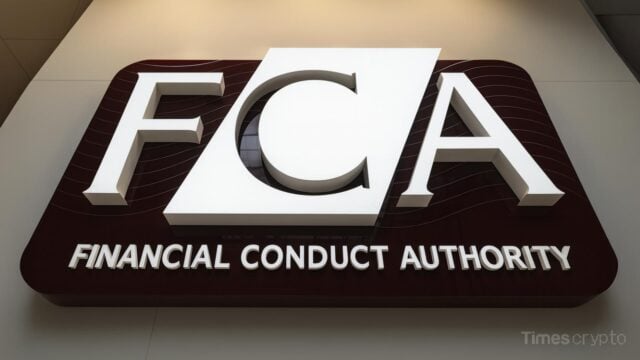Key Takeaways
- Hong Kong is among the first jurisdictions to launch a dedicated legal framework for fiat-backed stablecoins.
- Stablocoin Issuers must verify the identity of any stablecoin holder making transactions over HK$8,000, raising privacy and transparency concerns.
- Unlicensed issuance, offering, or advertising can lead to fines up to HK$5 million and 7 years in prison, with daily penalties for ongoing breaches.
- Licensed issuers must hold at least HK$25 million in paid-up share capital and keep all reserves fully backed, segregated, and invested in high-quality, liquid assets.
- The HKMA can suspend or revoke licences, impose new conditions, and appoint a statutory manager to take control of troubled issuers.
Table of Contents
Hong Kong’s newly introduced stablecoin law is drawing criticism from industry players over its strict customer identity requirements, which they warn could slow adoption of stablecoins and damage the city’s position in the global digital finance race.
The Stablecoin Ordinance, which took effect on Aug. 1, makes Hong Kong one of the first jurisdictions to regulate fiat-backed stablecoin issuers.
However, market participants say the final know-your-customer (KYC) rules, which require issuers to verify the identity of stablecoin holders, have sparked industry backlash as they conflict with cryptocurrency’s traditional focus on anonymity and privacy.

Under the Hong Kong Monetary Authority’s guidelines, issuers must collect and verify detailed personal information such as full name, date of birth, nationality, residential address, and government-issued ID number for any holder conducting transactions above HK$8,000 ($1,025) or establishing an ongoing relationship.
Industry participants say these identity checks erase the privacy typically associated with cryptocurrencies, making cross-border payments slower and less efficient while driving up regulatory compliance costs for issuers.

The Hong Kong Monetary Authority (HKMA), the city’s central banking regulator, has defended the measures as essential for tackling money laundering and terrorism financing, saying it wants to take a cautious approach in the early stages.
Still, industry sources warn that the extent of these checks on holders’ identities could deter users. “This is a bit too strict and not good for acquiring users,” said Bo Tang, head and assistant director at the HKUST Institute for Financial Research.
Inside Hong Kong’s Stablecoin Law
Hong Kong’s new Stablecoin Ordinance (Cap. 656) aims to bring order to the city’s fast-growing stablecoin market with a clear set of rules.
The regulatory framework, enforced by the Hong Kong Monetary Authority (HKMA), covers fiat-backed stablecoins through a licensing regime, reserve requirements, and operational standards for issuers.
The law also defines what counts as a stablecoin, identifies “specified stablecoins” pegged wholly or partly to official currencies or other HKMA-approved values, and limits issuance, offering, and related activities to licensed players.
HK$5M and 7 Years in Jail: Penalties for Unlicensed Stablecoin Activity
Under the new framework, unlicensed issuance, offering, or advertising of specified stablecoins constitutes a criminal offense, carrying penalties of up to HK$5 million and 7 years’ imprisonment on indictment, with additional daily fines for continuing breaches.
Furthermore, Publishing adverts for unlicensed activities is also prohibited, except for broadcasters or publishers that distribute them as part of their normal business operations.
HK$25 Million Capital and Full Reserves: The Price of a Licence
According to the ordinance, any entity applying for a licence to issue a specified stablecoin in Hong Kong must be either a company incorporated in the city or an authorised institution incorporated outside it.
Additionally, applicants are required to hold at least HK$25 million in paid-up share capital, maintain fully backed and segregated reserves in high-quality, liquid assets, and honour redemption requests at par value without undue restriction.
Licensed issuers must also regularly disclose details of their reserve composition, risk assessments, and audit results, and maintain clear plans for recovery and an orderly wind-down plan in case of trouble.

Who’s in Charge: HKMA Approval of All Executives
Under the Stablecoin Ordinance, governance and leadership standards are tightly regulated.
The HKMA must be informed of the identities of all individuals or entities with significant control over the business, including the chief executive, directors, stablecoin managers, and other senior management, all of whom must meet “fit and proper” standards covering integrity, competence, and financial soundness.
Additionally, officers responsible for the day-to-day management of licensed stablecoin activities must also possess the relevant knowledge and experience to perform their roles effectively.
Full-Scope Monitoring: KYC and AML Standards Under the Ordinance
The ordinance also embeds strict anti-money-laundering and counter-terrorist-financing requirements.
Licensed issuers must implement strong controls in line with both the Stablecoin Ordinance and the Anti-Money Laundering and Counter-Terrorist Financing Ordinance (Cap. 615).
The HKMA’s guideline requires thorough customer identity checks, ongoing monitoring of transactions, immediate reporting of suspicious activity, and detailed record-keeping.
HKMA’s Powers to Suspend, Revoke, or Seize Control
Beyond setting the rules, the HKMA has wide enforcement powers. It can suspend or cancel a licence for violations, add new conditions at any time, and even step in by appointing a statutory manager to take over a licensee in trouble.
Aug. 1, 2025 Rollout: Six-Month Window for Existing Operators
The new framework took effect on Aug. 1, 2025, alongside finalised HKMA rulebooks on supervision, AML/CFT, licensing, and transitional arrangements for pre-existing issuers.
As a result, firms already operating under the old system have a set transition window to either obtain a licence or shut down their Hong Kong operations.
For now, the rules cover only fiat-referenced stablecoins, though the HKMA retains the power to expand the scope to other types in the future.
Final Thoughts
Despite the unquestionable importance of anti-money-laundering and counter-terrorism measures, the identity rules take away one of stablecoins’ most desirable features: anonymity.
Therefore, finding the right balance between transparency for regulators and privacy for users will be crucial if Hong Kong wants to encourage innovation while preserving trust in its financial system
Read More: CFTC to Allow Exclusive Spot Crypto Trading on Registered Futures Exchanges







